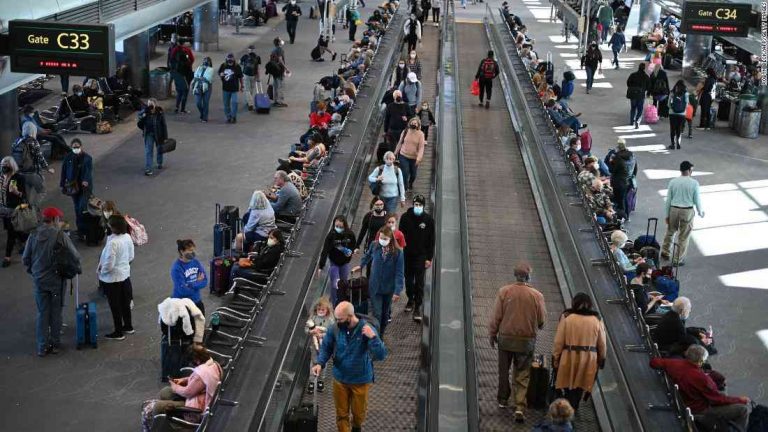Image copyright Getty Images Image caption Michael Powell is an assistant professor at Virginia Commonwealth University
The US Department of Homeland Security is officially putting an end to the tradition of Omicron, its 25-year-old traveller alert system.
But security checks will be kept more than 11 years old, and airports must beef up their own screening.
What does it mean for Brits?
While visitors from five Middle Eastern and African countries – Lebanon, Syria, Sudan, Iraq and Iran – are still not allowed to enter the US without a visa, their nationality must not have been flagged up in previous, credible but broad instances of suspicions.
That means a researcher studying the Middle East, a school teacher in Dubai or a pharmacy student in Mogadishu could take their trip to the US and be left open to random searches.
Chris Palmer, a professor at Wayne State University who heads the America’s Global Leadership Initiative, told BBC News in August: “What’s different is that it now contains a very specific set of criteria so that people don’t look like they are immigrants.”
Who should I visit?
The designated countries are those which have serious terrorist networks in their midst and provide a threat to the US homeland.
They are not immediately obvious winners – though Morocco has an active rebel movement in its north and Afghanistan had a major terrorist attack on its soil in 2009.
The advisory covers 10 countries which account for about three quarters of all travellers from the Middle East.
Image copyright Getty Images Image caption These are the countries whose citizens will no longer be subject to a US visa requirement
Which airports will it affect?
Omicron is only valid at airports that get security funds via the Federal Aviation Administration (FAA) – but as those funds run out by the end of the year, more of the business of policing international airports could be the US’ responsibility.
The oldest requirement is at the US ports of entry, and officers have quotas which they have to meet: this year, 76.5% of arrivals from Mexico are screened.
According to a report by the American Civil Liberties Union (ACLU), the change will make airports like New York’s JFK – currently the busiest international gateway in the US – more prone to violation of privacy and civil liberties by officials.
US airports with links to Omicron:
Atlanta’s Hartsfield
Chicago’s O’Hare
JFK
London’s Heathrow, Luton and Gatwick
Lebanon
Morocco
Syria
Sudan
Iraq
Iran
Did you know?
Omicron was created in 1987 under President Ronald Reagan and adopted under Bill Clinton in 1995. It was scrapped by George W Bush in 2001 and reinstated by Barack Obama in 2009.
Image copyright Getty Images Image caption President George W Bush terminated Omicron in 2001
Omicron can be used to report the presence of a dangerous individual on US soil, however, if US diplomats determine that the individual is not a threat.
